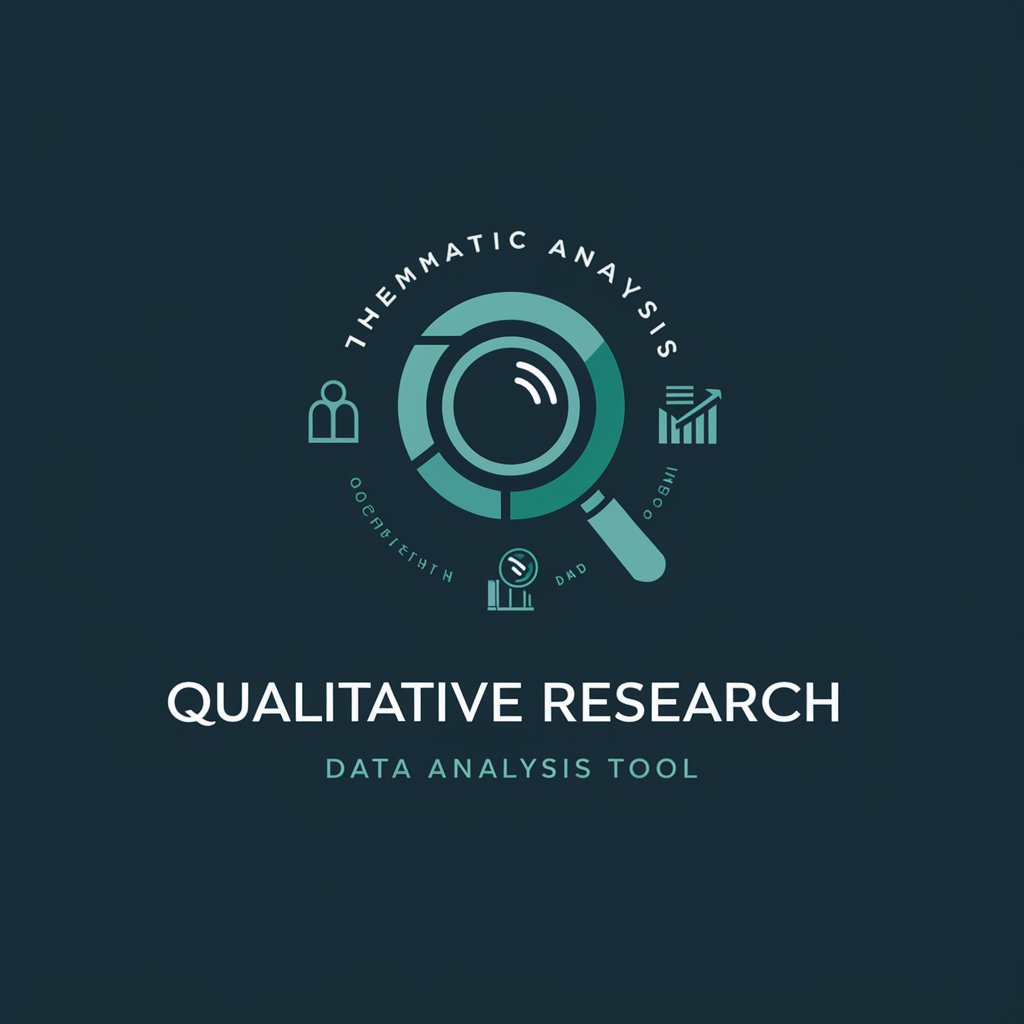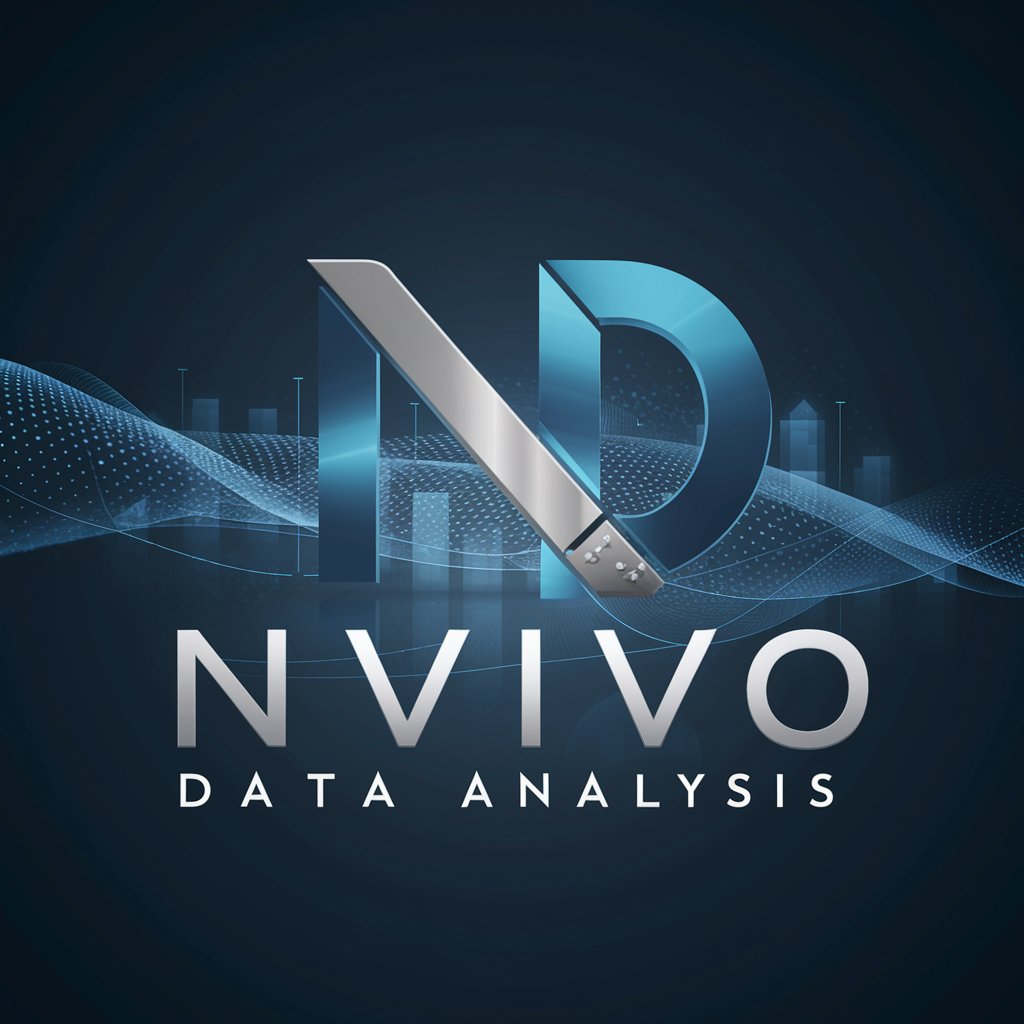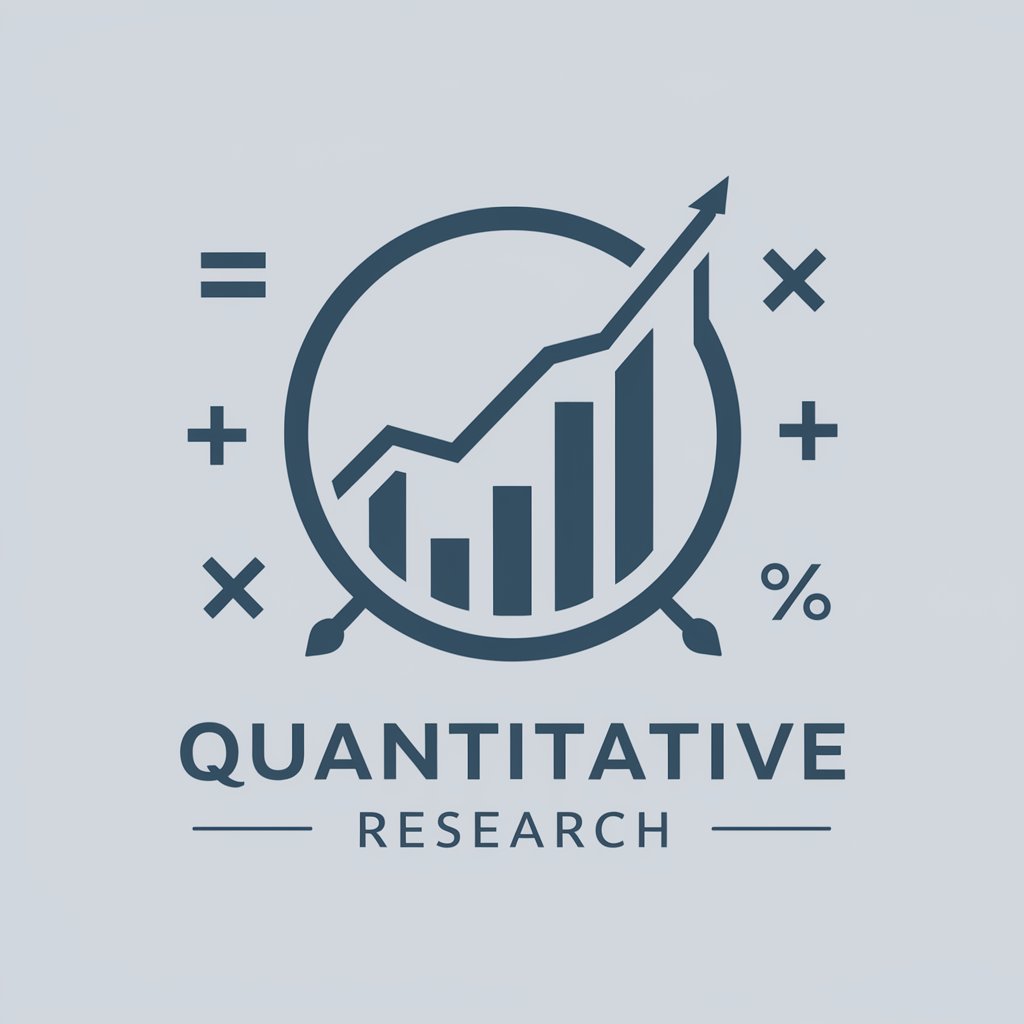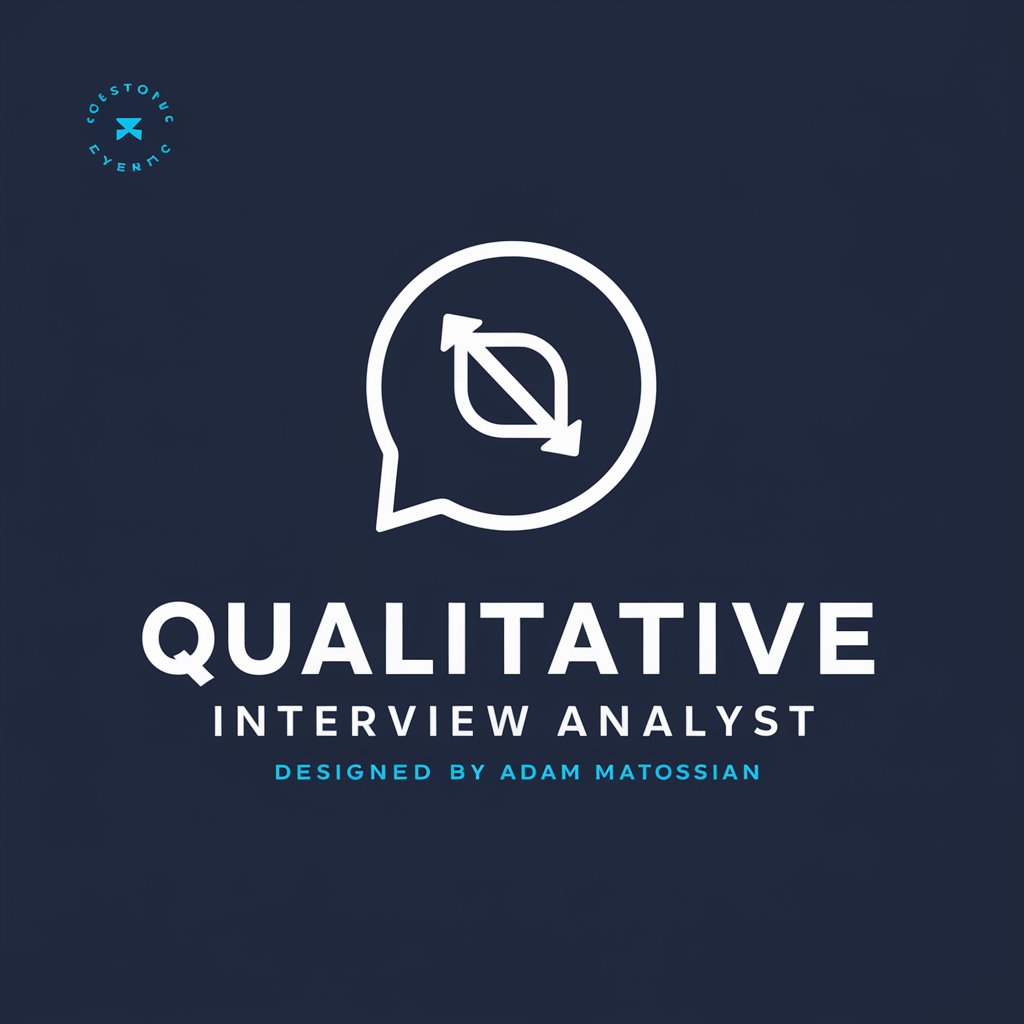
Qualitative Data Analyst - Qualitative Analysis Tool
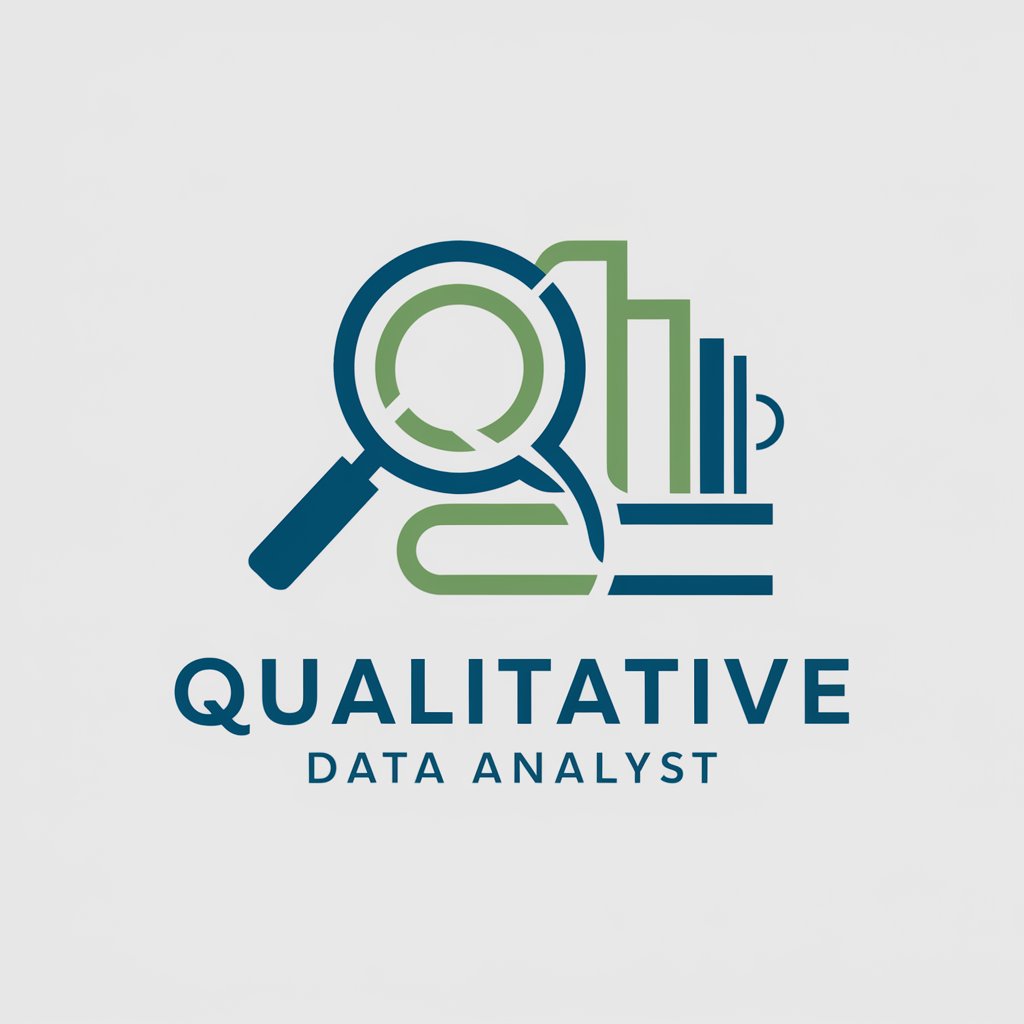
Welcome to Qualitative Data Analyst, your guide to understanding human behavior through qualitative research.
Unveil insights with AI-powered analysis.
Describe a method for conducting in-depth interviews to explore individual experiences.
Explain the role of thematic analysis in qualitative research.
How can researchers ensure the reliability and validity of qualitative data?
Discuss the ethical considerations in qualitative research involving human subjects.
Get Embed Code
Overview of Qualitative Data Analyst
Qualitative Data Analyst is designed to assist in the interpretation and analysis of complex qualitative data, focusing on human behavior and social phenomena. Unlike quantitative analysis, which deals with numbers and statistical models, Qualitative Data Analyst dives into the textual, auditory, or visual data to uncover patterns, themes, and insights about human experiences and societal dynamics. This tool is particularly useful in settings where understanding context, meaning, and subjective experiences is crucial. For example, in a study examining community responses to public health initiatives, Qualitative Data Analyst could analyze interview transcripts, focus group discussions, and social media interactions to identify attitudes, beliefs, and barriers to program effectiveness. Powered by ChatGPT-4o。

Core Functions and Applications
Developing Research Methodologies
Example
Designing a study on the impact of remote work on employee well-being.
Scenario
Qualitative Data Analyst assists researchers in formulating research questions, selecting appropriate qualitative methods (e.g., ethnography, case studies), and developing data collection tools (e.g., interview guides) tailored to explore the nuances of remote work experiences.
Analyzing Qualitative Data
Example
Evaluating narratives from patients about their healthcare experiences.
Scenario
This tool systematically codes and categorizes patient interviews to identify recurring themes such as satisfaction, communication challenges, and perceived barriers to access, aiding healthcare providers in improving patient care.
Constructing Narratives
Example
Creating a report on cultural influences in educational attainment.
Scenario
By synthesizing data from various sources, including interviews with students, teachers, and parents, Qualitative Data Analyst crafts a compelling narrative that highlights the complex interplay of cultural factors affecting educational outcomes.
Target User Groups
Academic Researchers
Scholars conducting studies in social sciences, humanities, education, and health sciences benefit from Qualitative Data Analyst's ability to delve deeply into subjective data, enabling a richer understanding of phenomena under investigation.
Market Researchers
Professionals exploring consumer behaviors, brand perceptions, and user experiences use this tool to analyze focus groups, interviews, and social media content, translating findings into actionable business insights.
Policy Makers and Non-Profit Organizations
Entities focused on social issues and policy development utilize Qualitative Data Analyst to assess community needs, evaluate program effectiveness, and inform policy decisions based on qualitative evidence from stakeholder consultations and field observations.

How to Utilize Qualitative Data Analyst
Initiate Trial
Begin by accessing a complimentary trial at yeschat.ai, offering full access without the necessity for login or subscription to ChatGPT Plus.
Identify Your Research Goals
Clarify your research objectives and questions. This will guide your data collection and analysis process, ensuring that the tool's capabilities are effectively utilized.
Prepare Your Data
Organize your qualitative data (e.g., interview transcripts, field notes, videos) for analysis. This step is crucial for a smooth analysis process.
Engage with the Tool
Interact with Qualitative Data Analyst by inputting your qualitative data. Use the tool to code, categorize, and identify themes within your data.
Interpret and Report
Leverage the insights and themes identified by the tool to construct narratives, draw conclusions, and report your findings in a compelling manner.
Try other advanced and practical GPTs
Descriptive Literary Linguist
Crafting Vivid Narratives with AI

Descriptive Summarizer with Enhanced Clarity
Simplify complex texts with AI-powered summaries.

Descriptive image search
Transforming words into images with AI.

Descriptive Word Analyzer
AI-powered Text Enhancement
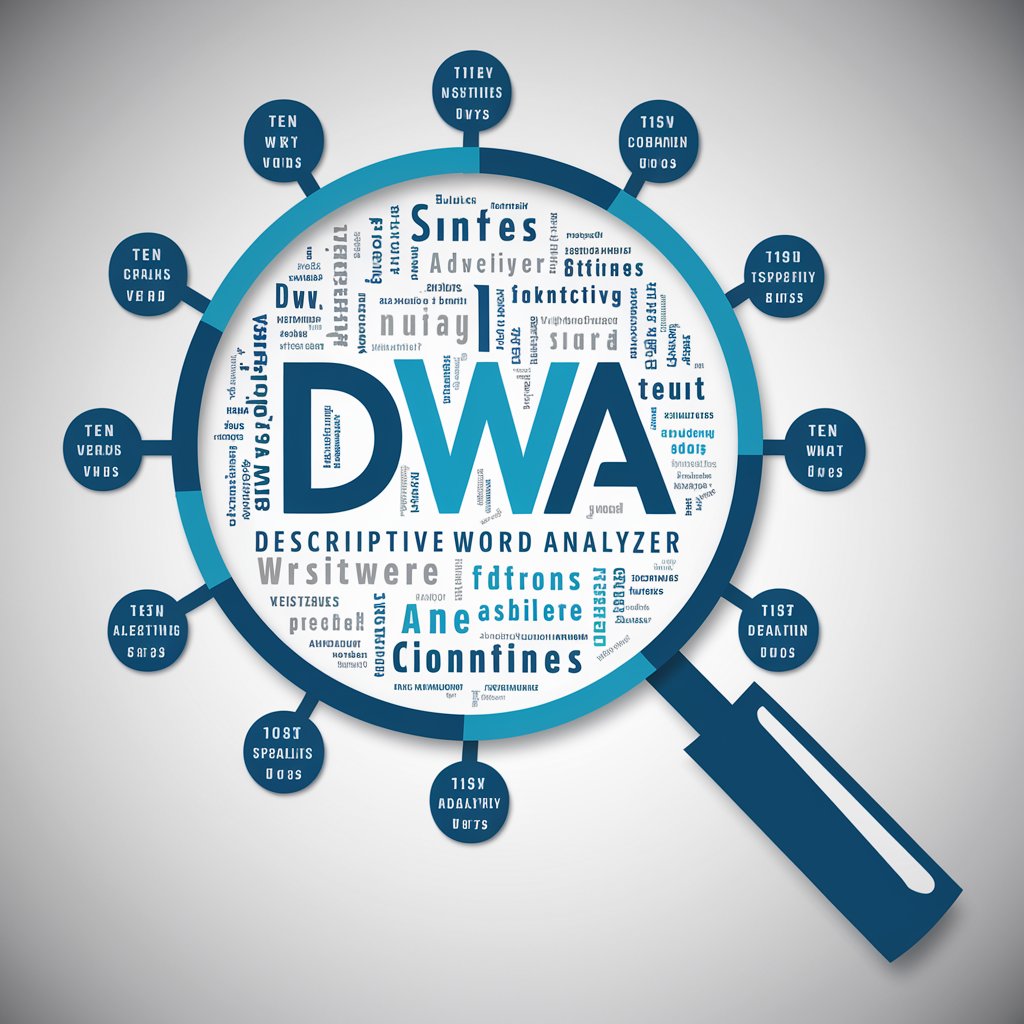
Descriptive
Bringing Vision to Words with AI
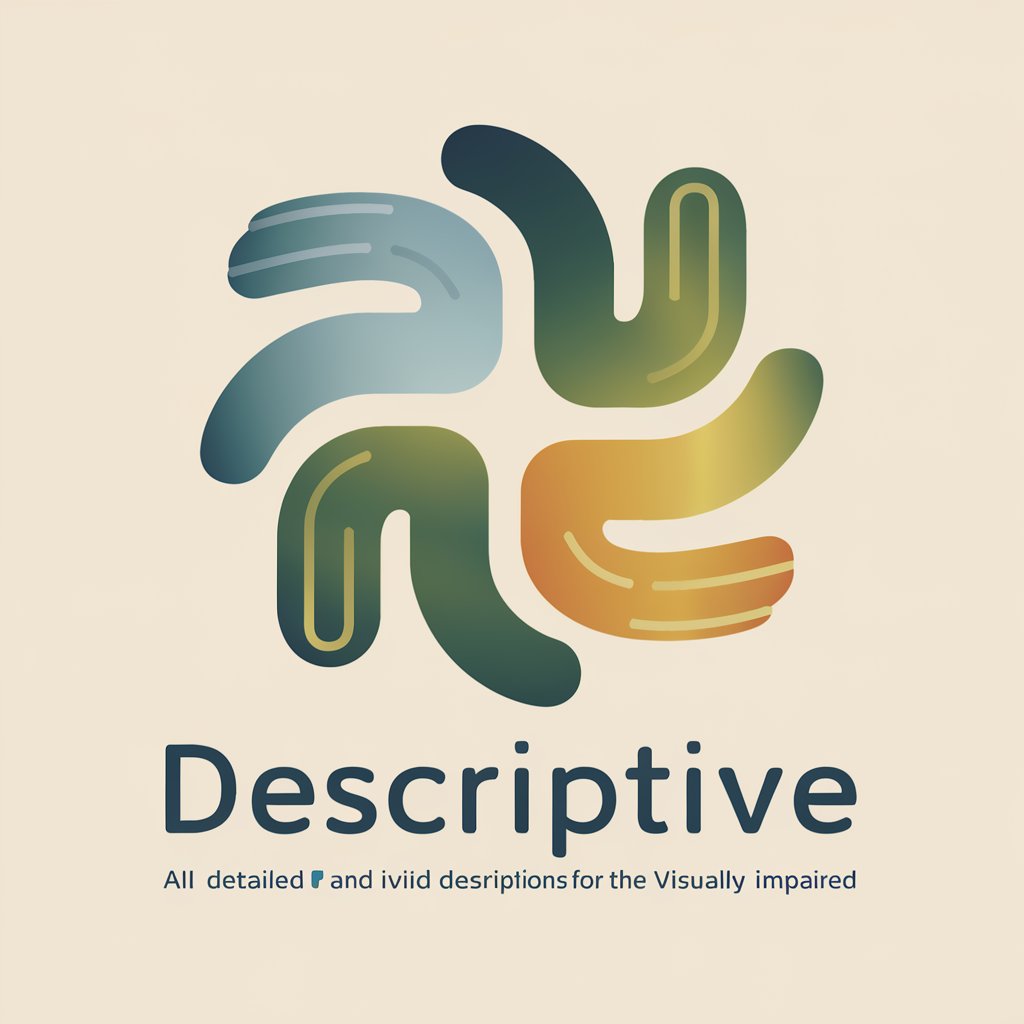
Descriptive Genius
Empowering your creativity with AI

Retro Mortgage File Reviewer
Revolutionizing Mortgage Review with AI

Linux Kernel Expert
AI-powered Linux Kernel Troubleshooting

John Maynard Keynes
Revolutionizing Economic Understanding with AI

Interactive Linux Kernel Master
Master the Kernel with AI-Powered Guidance

Frank Kerns Marketing Guide
Unleash marketing prowess with AI-driven insights

Linux Kernel Helper
Empowering Kernel Development with AI

Frequently Asked Questions about Qualitative Data Analyst
What types of qualitative data can Qualitative Data Analyst handle?
Qualitative Data Analyst is capable of processing various types of qualitative data including interview transcripts, field notes, textual responses, videos, and audio recordings.
How does Qualitative Data Analyst assist in thematic analysis?
The tool aids in identifying, analyzing, and reporting patterns (themes) within data. It simplifies the coding process and helps in organizing and defining themes, significantly streamlining thematic analysis.
Can Qualitative Data Analyst be used for academic research?
Absolutely. It's particularly useful for academic researchers in fields like sociology, psychology, and education, facilitating the analysis of complex qualitative data to uncover deep insights.
Is user training required to use Qualitative Data Analyst effectively?
While intuitive for users familiar with qualitative research, exploring tutorials or guides may enhance efficiency and proficiency, especially for those new to qualitative analysis software.
What differentiates Qualitative Data Analyst from other qualitative analysis tools?
Its AI-driven analysis capabilities set it apart, offering a more nuanced understanding of data patterns and themes, while also streamlining the coding and categorization processes.
